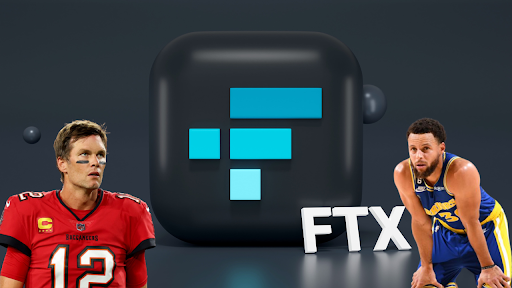There is no shortage of social media influencers sharing their love of all things, from the latest model phones, the “shacket” of 2022, the best sneakers, make-up and more.
Generally, these people are familiar with the products and use them regularly. So, when it comes to investments, especially regarding more novel products such as digital assets, should we rely on pro-basketball players and TikTok stars to use their platforms to tout products and companies they may not fully understand or even use?
Does he even like crypto?
After Shaquille O’Neal said he was “just a paid spokesperson” regarding FTX, it prompted a real think about the way we treat influencers. It begs the question: should someone who has been open about his lack of familiarity or dislike for an industry be the person that is paid to be its spokesperson?
If advertising is largely prohibited when it comes to investment marketing, shouldn’t digital assets fall under the same scrutiny?
Crypto is growing up
Crypto is coming of age at a time when Twitter is the primary news source for many people, and print editions of newspapers continue to shrink day-by-day. The rules have changed when it comes to marketing and communications. Utilizing social media and influencers to get your message across is now par for the course.
But, with so much at stake, shouldn’t the whole of the digital assets industry be taking a more calculated approach when it comes to disseminating their message? Given the bad actors and misinformation out there, the answer to this question should probably be a resounding “Yes!”
Rules are not always our enemies
While working in regulated markets wasn’t always easy, it made me appreciate a healthy dose of fear.
In the beginning of my career, my former boss at the hedge fund where I worked placed calls directly to investor relations departments. This practice was eventually prohibited due to lack of public disclosure. It wasn’t a practice that was uncommon – until it was barred. The industry had to change so regulators stepped in to ensure no one would have an unfair advantage.
Public disclosure rules were put in place to avoid having one firm or individual use a more favorable relationship with a public company and facilitate a more informative call or meeting than the general population received. Next came the Global Settlement in 2003, which created an official wall between the likes of investment bankers securing funding for deals and the research analysts that covered the same company. This removed problematic biases.
From there, we saw a flurry of regulatory activity take place following Enron, Madoff and the 2008 global recession. All of these rules and regulations were put in place to foster safety and transparency for the collective.
If we follow the trajectory of the financial markets and banking industry – which do have heavy scrutiny but also come with protections such as the FDIC – we can learn a thing or two about how to market digital assets and the exchanges in a more deliberate, balanced way.
Getting it right
We know the FTX fallout will continue to have implications and ripple across the market for some time. So, who is getting it right when it comes to marketing digital assets?
While it was one of the most expensive slots ever, Coinbase’s Super Bowl ad gave a glimpse that sparked curiosity – so much so that the app crashed. After all, isn’t that what it is about – getting an introduction and deciding if you want to learn more?
When we see a celeb or social media star associated with a product, I would go out on a limb and say most people think that person is advocating for it. We are also likely to believe they are an investor or user themselves. This does not just apply for Shaq and FTX; it really can be tied to any product or service or company.
Let’s use the community itself to build the trust
So, as the world continues to scrutinize all things FTX, I would like to take the time to look into how we can access truthful information. How can we come to know products and build a community that is based on people who really believe in it? Can we do this with helpful protections put in place?
While the regulations are being ironed out – which will take some time – let’s look toward what we as a community can do. Maybe it is time we shift who we put our trust in, especially if we want to continue with transparency in this industry. All we really need is that glimpse of a product. If it is good enough, you may just find you can influence your own audience through what is a good use case in front of an audience that matters.
I would rather see an artist discuss their success with NFTs or an entrepreneur from a developing country explain how their idea harnesses Web3 to change lives around the world. These stories are out there and they’re influencing the evolution of Web3 every day. Let’s bring the real influencers to the top of the feed.
Kelly Ferraro is an events columnist at Grit Daily. She is partner and co-founder of River North Communications, touting over two decades of experience as a corporate communications professional. Having previously worked at Bank of America and Guggenheim Securities, she is well-equipped to design and implement media campaigns that align with business objectives. Kelly began her career at a hedge fund, developing a love for numbers as they told a company’s true story. She is also passionate about the blockchain evolution and believes transparency is the key to widespread adoption.
Credit: Source link


Comments are closed.